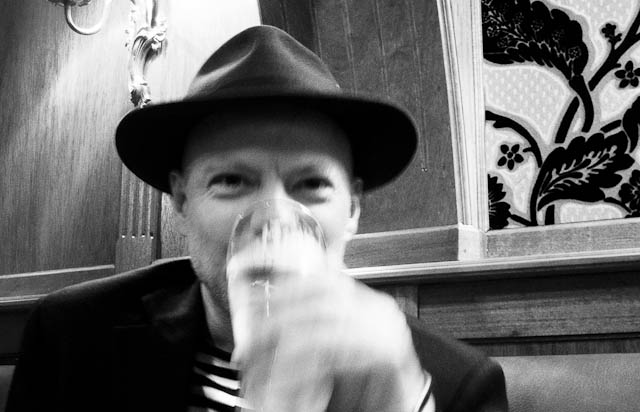I’ve linked to NPR:s Planet Money before. This time they have an eye-opening story on the pirates outside the coast of Somalia: A ship belonging to a Danish company is boarded and what ensues is a straightforward business negotiation. It’s the most educational 25 minutes you’ll have this week. You’re welcome.
[audio:https://monocultured.com/blog/wp-content/uploads/2009/05/planetmoneypirates.mp3]Also, in regards to what Žižek and others have said about capitalism being the superstructure onto which democracy or tyranny is latched:
Once they get online unsupervised, do we expect Chinese Internet users, many of them young, to rush to download the latest report from Amnesty International or read up on Falun Gong on Wikipedia? Or will they opt for The Sopranos or the newest James Bond flick? Why assume that they will suddenly demand more political rights, rather than the Friends or Sex in the City lifestyles they observe on the Internet?
→ Boston Review, Texting Toward Utopia: Does the Internet spread democracy? By Evgeny Morozov.

A couple of days ago Philipp Rode from LSE (London School of Economics and Political Science) held a lecture at Chalmers on the sustainability of cities and changes we’ll be forced to make. Ana invited me to the dinner afterwards, and rather soon we were talking about what might be the driving force behind such changes.
Philipp seemed to suggest that economic incentives might be enough for private enterprise to adopt a greener stance and long term goals rather than focusing on next years dividends; I don’t buy it, but it’s a majority view and a model of change that most people prefer right now to Earth Liberation Force.
My political analysis is very traditional: It’s class war all the way, baby, and the changes for public good (eight hour workday, voting, right to trial, etc) have all come about with the implicit or explicit threat of violence or revolution. Nothing is ever given, only taken, which posits that whatever economic measures that governments would have to put in place would be met with tremendous resistance.
The objective must be to create a model for and mode of co-operation where radical ecological direct action as well as large scale economic systems can be included as viable routes. How to bring together actors in a way so progress is made in an inclusive and progressive way, one small step at the time? How can a largely uninformed and busy public ever take responsibility and charge of their societies in the long run?

Maybe alternative reality games (ARG:s) can be seen as a method for co-operation? Check out all the smart stuff that Jane McGonigals has to say; She’s is creating ARG:s and thinking about games for a living. As opposed to a traditional game, where little is at stake and there’s no ambiguity as to the puppet masters role, think of harnessing our collective intelligence in search of a solution to a particular problem. I don’t know how far you can abstract “reality” or parcel it up so that people with little knowledge could play with it, but if you could turn the tedious task of long term planning into something fun you’d actually have people who’d want to participate:
As the leading edge of research, industry, politics, social innovation and cultural production increasingly seek to harness the wisdom of the crowd and the power of the collective, it is urgent that we create engaging, firsthand experiences of collective intelligence for as wide and as general a young audience as possible. Search and analysis games are poised to become our best tool for helping as many and diverse a population as possible develop an interest and gain direct experience participating in our ever-more collective network culture.
→ Jane McGonigal, Why I love bees: A study in collective intelligence gaming. [pdf]
Remember how Internet used to be something that you thought only geeks would ever use? Or when email seemed like a fad and you never thought you’d own a cellphone? Well, if you want to be ahead of the curve you really should read what Jane has to say.
Case in point: Fold.it, a game where you muck around with protein in search for a cure for cancer. You learn the rules of the game, and then you’re doing science. For real.